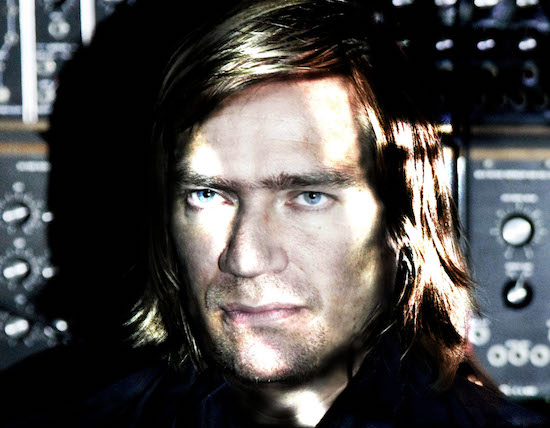A few years back, I went to Benge’s studio to interview John Foxx for a Quietus feature on the brilliant John Foxx & The Maths, the brilliant dystopian synth project that featured Foxx, Hannah Peel, Serafina Steer, and Benge himself. Located deep in an east London basement, the room was absolutely heaving with analogue synth gear, the walls blinking at us like a city viewed from a low-flying aircraft. Indeed, such was the electronic presence in the room that when I got my dictaphone home to transcribe the chat, Foxx’ voice was distorted and barely audible under weird interference, hum and fizz. Rumour has it that Benge has now had to decamp to the remote slopes of Dartmoor in order not to disrupt flights coming into Heathrow. Way back when The Quietus began in 2008, Benge released 20 Systems, an album that made use of this fearsome array of technology for what Jude Rogers described as "a library of sound given organic form – the veritable huge tree of knowledge. Teaching us so much about the wild roots of our music, it will keep growing, too." In his Baker’s Dozen, Benge takes us on a guide through some of his favourite music wrangled from the the history of synthesised music. "Here are selection of some of my favourite electronic albums," he says. "I have tried to choose things that are not necessarily the most obvious of their genre, but things that explore and develop the genre in new ways, as I see it." You may well be aware of Benge through his work as part of Quietus-favourites Wrangler, alongside Stephen Mallinder and Phil Winter of Tunng. Wrangler will be playing at John Grant’s North Atlantic Flux as part of Hull City Of Culture 2017, for more information visit the Hull 2017 website. Click on the photo of Benge below to begin the list.
While His Synth Gently Beeps: Benge’s Favourite Electronic LPs
We know you all love a bit of synth porn so here's Benge's Baker's Dozen - a sort of synth erotica reading, if you will, as he guides you through 13 electronic favourites from Morton Subotnick to Else Marie Pade and George Harrison's Moog explorations to Air and Autechre. Benge photo by Ed Fielding


